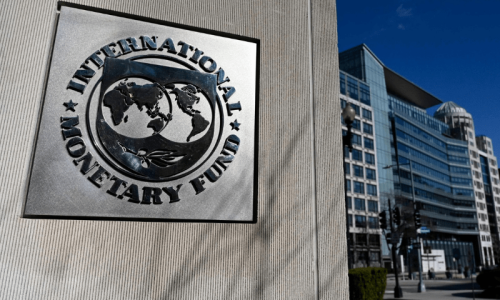
In The Donkey King (DK), the anthropomorphic animal denizens of Azaad Nagar are fed up of their country’s reigning monarchy. The King (Badshah Khan, voiced by Ghulam Mohiuddin) either sleeps or complains of old-age joint pains. His son Shahzada Khan (Adeel Hashmi) is a selfie-addict who zooms around in a sports car. The vegetarian animals (led by a bear, who as far as I know, do eat meat) protest against the royal feasts that include goats — the latter are, unsurprisingly, also the king’s subjects. The fake news media people (voiced by Irfan Khoosat and Faysal Qureishi) incite the citizens against the monarchy with the assistance of Miss Fitna (Hina Dilpazeer), a sly-looking fox who is one of the king’s advisers.
Yup, things are quite bad for the royal lineage. None of it, though, matters to DK’s hero Mangu (Afzal ‘Jan Rambo’ Khan) — a motiveless donkey who dreams of winning millions at game shows or romancing a potential mate in a flying car that has an uncanny resemblance to Chitty Chitty Bang Bang (a hit children’s movie from the ’60s starring Dick Van Dyke).
Mangu will, as one can guess from the title, become king when the need for democracy becomes a war cry. Hailing democracy is, after all, the film’s real agenda, such as Chambaili, another Geo Films’ release. If you thought this was a children’s fairytale, you’re quite mistaken, sir.
Co-writer, producer, director Aziz Jindani is enamoured by Hollywood. From the flying car to animals that mimic very human worries, to context and subtext — DK is a keenly-designed motion picture that lampoons real-world drama in what looks like kiddie entertainment. It’s a tough, well-meaning circus act that circles around the story’s potential greatness.
The Donkey King may be a tad heavy-handed with its political satire and its lip-sync may have issues, but it is technically very good otherwise and at least it’s a thinking person’s animated film
However, Zootopia DK ain’t. (The former, by the way, also had politics, racial bias and animals that walked on two feet).
On face value, Mangu is the Frank Capra-esque hero archetype (the Mr Smith from Mister Smith Goes to Washington, or the John Doe from Meet John Doe); a representation of the common man — men, who from the perspective of the screenplay, are jackasses.
One dialogue of being born a donkey and staying one (with a heavily pronounced ‘Insha Allah’) clearly cements that notion. Well, not quite.

While there is nothing innately wrong with the notion of caricaturing a donkey as human (or vice versa), Mangu, as a character, is hardly a trivial blip in the story.
When we first see him, Mangu personifies simple desires of the typical male by dreaming of winning millions and good-looking females. There is little more to Mangu than that because we hardly see him mature with circumstances. When the screenplay becomes a heavy-handed satire on governance and politics, Mangu is unceremoniously swept under the rug as if he was inconsequential to anything that happens in the movie (well, save for the big action finale).
DK feels like a cruder form of human satires such as George Orwell’s Animal Farm (adapted twice, once as an animation), the animated film Watership Down or even Aesop’s Fables. Feeding a donkey donkey meat, which alludes to sadistic cannibalism, or constantly referencing Punjab in the jokes spoils the fantasy of this make-believe world which already has its shares of discrepancies to begin with.
For instance, when Mangu battles a bull in an arena, why is that particular bull behaving more like an ‘animal’ than the other bulls who were chasing him just one scene before (the gang chasing Mangu are in hoodies and jackets while the bull Mangu fights is devoid of clothing and moves on all fours).
The voices are perfectly cast, but the dialogue delivery is loud (kinda reminds me of Yasir Nawaz’s Wrong No.). On top of that, the sharpness of the editor’s cut accentuates DK’s already heavy-handed spoofing.
The comedy (play on words and wit, not the choppy physical action) is enjoyable for adults, but only if one stops concentrating on the lip sync. The technical argument here is that not all 3D models have the right facial muscle deformation (rigging) to deliver believable dialogues. Some characters have more detail than others (Mangu’s nostrils, for instance, flare very convincingly).
Other technical details such as fur, reflections, lighting and compositing are exemplary. The last two practices are especially noticeable when Mangu’s dead father (voiced by Javed Sheikh) tries to talk some sense into him from time to time. (These bits are the best in the film, by the way).
Irrespective of these shortcomings — and let’s be honest, even the handful of good Pakistani films we produce have more cons than pros — Jindani’s directorial debut is at least thinking hard on what it wants to achieve as a feature film. At times his thought process might be a tad too vocal but, hey, at least he’s thinking.
Published in Dawn, ICON, October 21st, 2018















































Dear visitor, the comments section is undergoing an overhaul and will return soon.